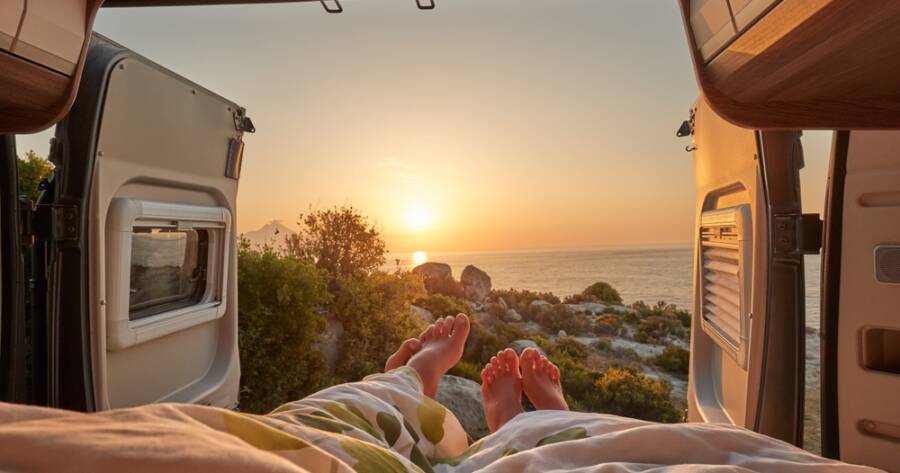The minimalist lifestyle has gained significant popularity in recent years, with many people seeking simplicity, mobility, and sustainability. Among the most common options for those looking to downsize are van life and tiny homes. Both offer unique benefits, but which one is the best fit for you? Here’s a closer look at van life versus tiny homes to help you decide which minimalist lifestyle suits your needs.
1. The Freedom of Van Life
One of the primary appeals of van life is the freedom it offers. Imagine waking up in a new location every day, whether it’s by the beach, in the mountains, or on a quiet country road. With a van, you can easily travel from place to place, taking your home with you wherever you go. This flexibility is perfect for those who enjoy adventure, exploration, and the idea of a constantly changing environment.
Van life also promotes a deep connection with nature and a sense of independence. You can park your van in remote areas, camp under the stars, and live without the constraints of traditional living. However, van life also requires adaptability. With limited space, you must be organized and creative to make the most of your living quarters. If you value freedom and mobility above all, van life might be the perfect minimalist lifestyle for you.
2. Stability and Comfort of Tiny Homes
While van life offers mobility, tiny homes provide a sense of stability and permanence. Tiny homes are typically built on trailers or foundations, and while they may be smaller than traditional homes, they offer a more structured living environment. With a tiny home, you can enjoy the comforts of a full-sized kitchen, bathroom, and sleeping area while still maintaining a smaller, more manageable living space.
Tiny homes allow for more space than a van, which can be appealing for those who want the minimalist lifestyle without the feeling of being cramped. Many tiny homes are equipped with modern amenities like full-sized appliances, storage solutions, and even eco-friendly features such as solar panels. If you prefer a stationary lifestyle but still want to reduce your environmental footprint and live simply, a tiny home might be the ideal choice.
3. Cost and Maintenance Considerations
Both van life and tiny homes offer the potential for lower costs compared to traditional housing, but there are important differences in terms of financial commitment and ongoing maintenance. When it comes to van life, the initial investment can vary depending on whether you buy a new van, retrofit a used vehicle, or purchase a fully converted van. While the upfront cost might be lower than that of a tiny home, there are ongoing expenses such as fuel, insurance, and vehicle maintenance that must be factored into your budget.
On the other hand, tiny homes may have a higher initial cost due to construction, permits, and the necessary infrastructure, especially if you’re building or customizing one yourself. However, once built, a tiny home typically has fewer ongoing maintenance costs compared to a van. Tiny homes can also be more energy-efficient, which can reduce utility bills. The choice between van life and tiny homes often comes down to your budget and how much you’re willing to spend on either mobility or stability.
4. Lifestyle and Community
A significant difference between van life and tiny homes is the type of lifestyle and community each offers. Van life often attracts people who love to travel, meet new people, and experience different cultures. The van life community is vast, with many online groups and meetups that offer support, advice, and the chance to connect with fellow travelers. This sense of freedom and community is a major draw for many who embrace the nomadic lifestyle.
Tiny homes, while also part of the minimalist movement, tend to attract people looking for a more settled lifestyle. While there are certainly communities of tiny home dwellers who share ideas and experiences, the lifestyle is often more solitary or rooted in one area. If you value stability and a sense of home, a tiny home may appeal more to you. However, if you’re looking for constant change and adventure, van life might be a better fit.
Choosing the Right Minimalist Lifestyle for You
Deciding between van life and tiny homes comes down to your personal preferences, goals, and lifestyle choices. Van life offers unparalleled mobility and the freedom to explore, while tiny homes provide a more permanent and comfortable living situation with all the conveniences of a traditional home.
Both minimalist lifestyles offer unique benefits and challenges, but the key to choosing the right fit lies in understanding what you value most—freedom, stability, space, or simplicity.

